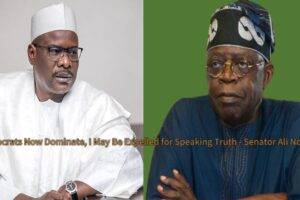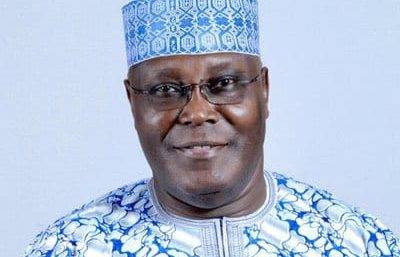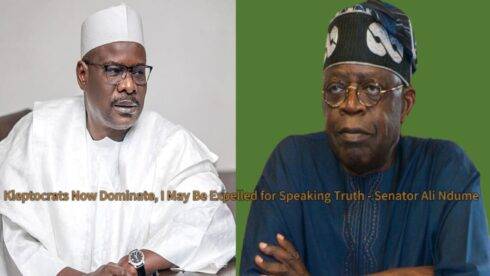In a functioning democracy, the end of an election marks the beginning of a new phase of governance and nation-building. Ideally, the winner focuses on building the country with support from critical stakeholders, while the opposition plays a vital role in holding the government accountable and providing constructive criticism as often be epitomizes by Atiku Abubakar.This dynamic was exemplified in the United States when George Bush Jr. and Al Gore faced off; after the fierce contest at the polls, the main challengers retreated to prepare for the next phase of their lives, allowing the governance process to proceed smoothly.
In advanced democracies, holding leaders accountable is a non-negotiable aspect of governance. It ensures that those in power do not act with impunity, disregarding the rule of law or the dignity of human values. Robust debate and accountability are the hallmarks of a healthy democratic system. Unfortunately, in Nigeria, the separation of politics and policy, particularly from opposition figures, often becomes fraught with issues. This is evident in the recent misinformed attack by former Vice President Atiku Abubakar on the current government’s pension fund plan.
Political Bickering Undermines Progress
Atiku Abubakar criticisms of the pension fund plan have been seen as part of a broader pattern of political bickering that undermines national progress. Instead of providing constructive feedback, his approach appears to be more about manipulation of public sentiment against the government. Such tactics slow down the country’s democratic trajectory and impede the progress needed for nation-building. This kind of opposition behavior is not new in Nigeria and highlights the recurring problem of conflating political rivalry with national interest.
The misinformed nature of Atiku Abubakar attack suggests a lack of understanding or a deliberate misrepresentation of the government’s policies. This behavior not only confuses the public but also detracts from meaningful discourse that could lead to policy improvements. In contrast, a more informed and constructive approach would help hold the government accountable while also contributing positively to policy development. This shift is crucial for the advancement of Nigeria’s democracy, ensuring that it remains robust and capable of withstanding internal challenges.
Atiku Abubakar Alarm Over Pension Fund Investment Plan
Former Vice President Alhaji Atiku Abubakar and the Minister of Finance, Mr. Wale Edun, have recently stirred significant public discourse regarding the Nigerian government’s proposal to utilize N20 trillion from the Pension Fund for infrastructure projects. Mr. Edun announced that the federal government intends to deploy these funds strictly following established regulations, aiming to boost national development through critical infrastructure investments.
However, this announcement has sparked intense online debates, particularly among opposition supporters who view the initiative with suspicion. The controversy quickly escalated as Alhaji Atiku Abubakar vehemently opposed the plan. In a strongly-worded statement on his verified X handle, he labeled the proposal as illegal and potentially harmful to the country’s economic stability. Atiku expressed concern that tapping into pension funds could undermine the financial security of retirees who rely on their pensions for survival.
Legal and Economic Implications Highlighted
Atiku Abubakar critique extends beyond general disapproval, focusing on the legal framework governing pension funds. He emphasized that any government action must adhere strictly to the Pension Reform Act of 2014 (PRA 2014) and the revised Regulation on Investment of Pension Assets issued by the National Pension Commission (PenCom). These regulations are designed to protect pension assets and ensure they are managed prudently and transparently.
The former Vice President’s Atiku Abubakar concerns are shared by many who worry about the long-term implications of diverting pension funds to infrastructure projects. Critics argue that such moves could jeopardize the financial future of retirees, leading to economic instability. Atiku Abubakar called for a cautious approach, urging the government to explore alternative funding mechanisms that do not risk the pensions of hardworking Nigerians. His statements have amplified the debate, prompting calls for greater transparency and adherence to legal standards in government financial initiatives.
Edun’s Rebuttal
Experts believe that the former Vice President, Alhaji Atiku Abubakar, was only being mischievous, having realized an information gap in the minister’s statement. According to these experts, Atiku Abubakar exploited this gap, launching criticisms without considering the potential impact on the economy. This tactic, they argue, reflects a broader trend of politicizing crucial economic issues, which could undermine efforts to stabilize and grow the economy.
The minister’s rebuttal to Atiku Abubakar comments was swift and pointed. In his response, he emphasized, “The pension industry, like most other financial industries, is highly regulated, with rules and limitations about what pension money can invest in and what it cannot.” This statement aimed to reassure the public and stakeholders that the federal government remains committed to protecting workers’ pensions by adhering strictly to these regulations. The minister further clarified that there are no intentions to overstep these boundaries, which are essential safeguards designed to ensure the security and integrity of pension funds.
Politicization of Economic Policies
The minister’s rebuttal highlighted a broader concern among experts about the overt politicization of critical economic policies. They argue that such politicization can polarize public opinion and derail constructive dialogue needed for the country’s economic recovery. This kind of political maneuvering, where economic policies become tools for political gain rather than public good, can have long-term detrimental effects on the economy. Experts emphasize the importance of a non-partisan approach to economic policy-making to foster stability and growth.
In light of this, experts have called on government officials to prioritize transparency and comprehensive communication regarding policy initiatives. By providing clear and detailed information, officials can preempt misinformation and disinformation, which often arise from incomplete or misunderstood policy statements. This approach not only builds public trust but also ensures that the government’s noble intentions are not undermined by political opportunism or misinterpretation.
Table of Contents
Discover more from OGM News NG
Subscribe to get the latest posts sent to your email.














